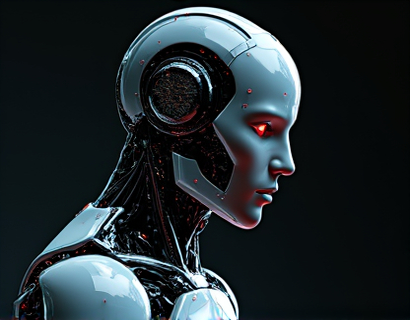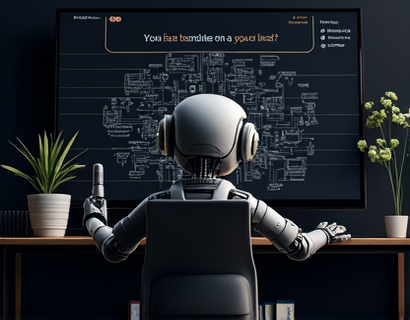Elevate Your Home with Cutting-Edge Smart Appliances: The Ultimate Guide to Modern Living Innovations
In the rapidly evolving landscape of home technology, integrating smart appliances has become a pivotal step towards modern living. These devices, powered by advanced algorithms and connectivity, promise to transform mundane daily routines into seamless, efficient experiences. This guide delves into the world of smart home solutions, highlighting the latest innovations that can elevate your living space. From energy-saving wonders to convenience-driven gadgets, discover how these cutting-edge appliances can enhance your lifestyle and make your home a smarter, more efficient place to live.
Understanding Smart Appliances
Smart appliances are not just gadgets; they are the cornerstone of a smart home ecosystem. These devices are designed to connect to the internet, allowing for remote control, automation, and data sharing. This connectivity is the key to their functionality, enabling features such as voice control, scheduling, and real-time monitoring. Smart appliances range from refrigerators that track food expiration dates to washing machines that optimize energy usage based on electricity rates.
Benefits of Smart Appliances
The advantages of incorporating smart appliances into your home are numerous. Firstly, they significantly enhance convenience. Imagine starting your laundry or preheating your oven with a simple voice command. This level of ease not only saves time but also adds a layer of luxury to everyday tasks. Secondly, smart appliances contribute to energy efficiency. Many devices can adjust their power consumption based on usage patterns and external factors, leading to lower utility bills and a reduced environmental footprint. Lastly, these appliances often come with advanced diagnostic features, alerting you to potential issues before they become major problems, thus saving on maintenance costs and extending the lifespan of your appliances.
Smart Refrigerators: The Heart of Your Smart Kitchen
Smart refrigerators are at the forefront of kitchen innovations. Equipped with touchscreens and internal cameras, these appliances offer a glimpse into the future of food management. They can create shopping lists based on what's running low, suggest recipes based on available ingredients, and even monitor food expiration dates to reduce waste. Some models feature built-in speakers, turning your kitchen into a mini entertainment center. The integration of health and nutrition tracking is another exciting feature, providing insights into your dietary habits and suggesting healthier choices.
Smart Ovens and Cooking Appliances
Smart ovens are revolutionizing the way we cook. With features like Wi-Fi connectivity, these ovens can be controlled remotely, allowing you to start or stop cooking, adjust settings, and check the status of your meal from anywhere. Some models come with pre-programmed recipes that guide you through the cooking process, ensuring perfect results every time. Induction cooking surfaces, a common feature in smart ovens, heat up quickly and efficiently, reducing energy consumption and cooking time. Additionally, self-cleaning functions and temperature sensors make these appliances not only smart but also user-friendly.
Smart Washing and Drying Machines
Gone are the days of manually adjusting settings on your washing machine. Smart washing and drying machines use sensors to detect the load size, fabric type, and soil level, automatically adjusting water and energy usage for optimal results. These appliances can be scheduled to run during off-peak hours, taking advantage of lower electricity rates. Some models even offer remote monitoring through smartphone apps, allowing you to start a cycle or check the status of your laundry from anywhere. The integration of AI technology further enhances their efficiency, learning your habits and preferences over time to provide personalized settings.
Smart Thermostats: The Brain of Your Home
Smart thermostats are often considered the brain of a smart home. These devices learn your temperature preferences and adjust the heating or cooling system accordingly, ensuring comfort while saving energy. They can be controlled via smartphones or voice assistants, allowing for precise temperature management even when you're away from home. Advanced models integrate with other smart devices, creating a cohesive system that optimizes energy usage across the entire home. Features like geofencing, which detects when you're approaching home, enable the thermostat to start adjusting the temperature in advance, ensuring a comfortable welcome.
Smart Lighting Systems
Smart lighting systems offer unparalleled control and flexibility. These systems can be programmed to adjust brightness and color based on the time of day or your activities, creating the perfect ambiance for any occasion. Voice control and mobile apps allow for seamless management, and some systems even integrate with security features, such as motion sensors that activate lights when movement is detected. Energy-saving LED bulbs, often used in smart lighting systems, further contribute to lower electricity bills and a reduced carbon footprint.
Smart Security Systems
Security is a paramount concern for homeowners, and smart security systems provide advanced solutions to ensure peace of mind. These systems include smart locks, cameras, and sensors that can be monitored and controlled remotely. Smart locks offer keyless entry, allowing you to grant access to guests or service providers without the need for physical keys. Security cameras with night vision and motion detection provide real-time monitoring, and alerts can be sent to your smartphone in case of suspicious activity. Integration with smart home hubs ensures that all security devices work in harmony, enhancing overall safety.
Smart Speakers and Home Entertainment
The integration of smart speakers into the home entertainment system has transformed the way we enjoy music and media. These devices not only play music but also serve as central hubs for controlling other smart appliances. With built-in voice assistants, they can answer questions, set reminders, and control lights and temperature. Smart TVs and streaming devices further enhance the entertainment experience, offering high-definition streaming and voice-activated navigation. The convenience of controlling all your entertainment devices with a single voice command makes smart home entertainment systems a must-have for tech-savvy homeowners.
Challenges and Considerations
While the benefits of smart appliances are clear, there are several factors to consider before making the switch. Compatibility is a key concern, as not all devices work seamlessly together. Ensuring that your chosen appliances are part of a compatible ecosystem is crucial for a smooth user experience. Privacy and security are also significant issues, as connected devices can be vulnerable to hacking. It's essential to choose reputable brands that prioritize security and provide regular updates to protect your data. Lastly, the initial investment in smart appliances can be higher than traditional models, but the long-term savings on energy and maintenance often justify the cost.
Future Trends in Smart Appliances
The future of smart appliances is exciting and rapidly evolving. One trend is the increased integration of AI and machine learning, enabling devices to become even more intuitive and personalized. Voice control will become more sophisticated, with better understanding of context and natural language. Energy efficiency will continue to improve, with appliances designed to consume minimal power while maintaining high performance. Additionally, the Internet of Things (IoT) will expand, connecting more devices and creating a more interconnected home environment. As technology advances, the line between smart appliances and home automation will blur, leading to more integrated and autonomous living spaces.
Conclusion
Incorporating smart appliances into your home is a step towards a more convenient, efficient, and enjoyable living experience. These devices not only simplify daily tasks but also contribute to a more sustainable future. By understanding the benefits, features, and considerations of smart appliances, you can make informed decisions to enhance your home. Embrace the future of living with cutting-edge technology that makes your life easier, more comfortable, and more connected.










































